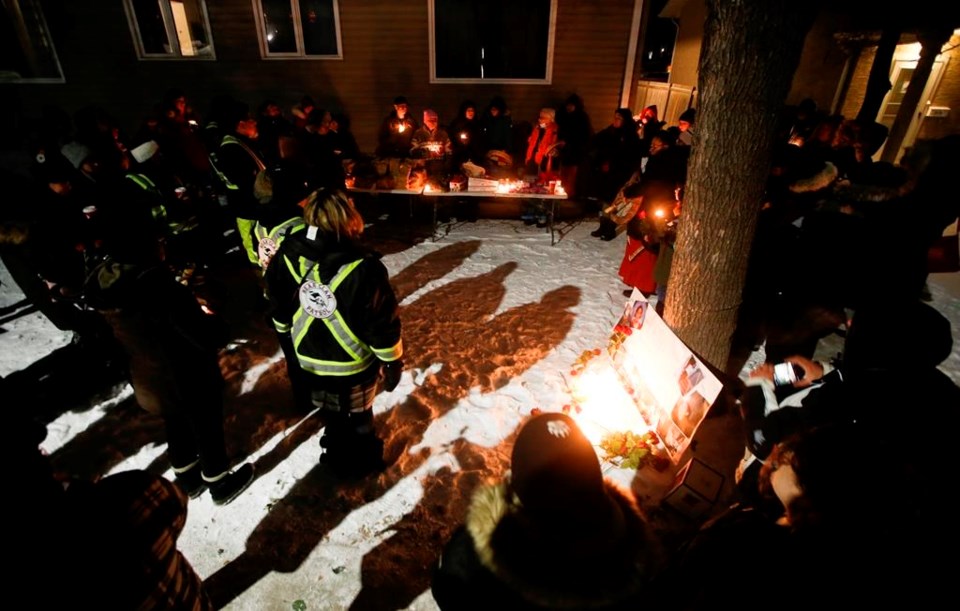WINNIPEG — A search for the remains of two Indigenous women at a landfill north of Winnipeg could begin as early as April, pending the outcome of a feasibility study.
Grand Chief Cathy Merrick of the Assembly of Manitoba Chiefs said the effort to find the remains of Morgan Harris and Marcedes Myran will include a visit to the privately owned landfill later this month.
"We are planning a tour of the Prairie Green landfill, which the owner has graciously offered to organize for us to see the area of interest," Merrick said at a news conference Friday.
Police believe the remains of Harris and Myran were sent to the landfill last spring. Jeremy Skibicki is accused of killing them, as well as Rebecca Contois, whose partial remains were found in the city-run Brady landfill in south Winnipeg, and an unidentified woman Indigenous leaders have named Mashkode Bizhiki'ikwe, or Buffalo Woman.
Some community members believe Buffalo Woman's remains may also be at Prairie Green.
Skibicki faces four counts of first-degree murder. He has not entered a plea yet, but his lawyer says Skibicki maintains his innocence.
Police initially rejected the idea of a search of the Prairie Green landfill, citing the passage of time, the lack of a precise location within the landfill and the tonnes of material that were later deposited in the area.
After public pressure, an Indigenous-led committee was put together to examine whether a search is feasible. The federal government announced this week it will commit $500,000 to the feasibility study, which is to include advice from forensics experts.
The study could take four to six weeks, Merrick said Friday, and the search itself could begin shortly after that.
Another committee member said the group has been looking at different methods for conducting the search, including the use of a conveyor belt that would let searchers sift through debris on-site.
"We're looking to go to a recycling plant that offered to help us, to lift any metal debris out and then have officers stationed on either side (of the conveyor belt) as well as searchers, so we're very able to very quickly do a hand-eye search," Kristin Flattery said.
A relative of one of the victims said seeing people come together to push for a search of the landfill has helped the family.
"To be able to see all these experts and all these levels of government sitting at the table and really just coming ... to do their best work and with the best intentions has made it a lot easier for us," said Kirstin Witwicki, a cousin of Harris.
Merrick called on governments to also tackle the root causes that put Indigenous women at risk.
"It's not by choice that they leave our communities either. It's because there's a lack of housing ... (and) you won't find a university in any First Nation in Manitoba," Merrick said.
"We need to be able to ensure that when our students leave the community, that there's safety measures here, that we're here for them."
This report by The Canadian Press was first published Feb. 10, 2023.
Steve Lambert, The Canadian Press



